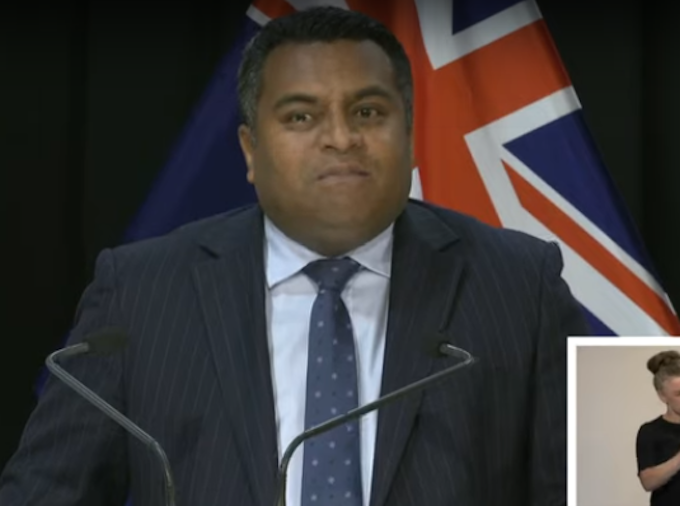
By Sri Krishnamurthi, contributing editor for Pacific Media Watch
New Zealand’s Minister of Broadcasting, Communications and Digital Media Kris Faafoi today announced the first tranche of support initiatives for the media, most of it going to broadcast.
Minister Faafoi announced a package worth $50 million to help the media get through the covid-19 coronavirus pandemic.
His announcement comes a week after the media fronted the parliamentary Epidemic Response Committee via Zoom.
READ MORE: Covid-19: Government announces support package for media
Faafoi said the intent of the initial tranche was to free up cash for commercial media companies following the drop in advertising revenue that occurred when New Zealand went into level 4 lockdown last month.
The bailout coincided with the release of a report by Auckland University of Technology’s Journalism, Media and Democracy (JMAD) centre which showed a relative high trust of the media in New Zealand.
The poll, which was carried out by Horizon Research, a marketing company that found in comparison trust in news in New Zealand was generally high with 53 percent of people agreeing they could trust “most of the news most of the time”.
The report, by AUT academics Dr Merja Myllylahti and Dr Greg Treadwell, found 63 percent of New Zealanders trusted the news they personally consumed.
Trust in news consumed via social media and search engines in New Zealand was low when compared internationally.
Minister Faafoi announcing the media rescue package today. Video: RNZ News
Faafoi said that this package alone won’t be enough for the media industry to survive a prolonged period of lockdown restrictions and redu
Second tranche planned
Minister Faafoi said that the first tranche of support for the media industry would not be enough to survive a prolonged period of lockdown restrictions and reduced advertising, and that a second tranche package was being put in place that would be submitted for budget discussions next month.
He gave a breakdown of where the money was going:
- $20.5 million to cut television and radio transmission fees for six months;
- $16.5 million reduction in media organisations’ contribution fees to NZ On Air for the 2020/21 financial year;
- $11.1 million for specific targeted assistance to companies;
- $1.3 million to purchase central government news media subscriptions;
- $600,000 to completely cut RNZ AM transmission fees for six months;
- A commitment to further develop the Local Democracy Reporting pilot.
Of that, the $11.1 million for targeted assistance to media companies was unclear but was assumed to be for commercial print or online media.
“The proposals in this package were generated by the industry themselves in a recent series of workshops to identify means of delivering immediate support to the sector. We have chosen the proposals that have a relatively quick impact to get support out the door as fast as possible,” Faafoi said.
“This support reflects the essential role media play at this time in delivering access to reliable and up to date news coverage and keeping New Zealanders connected while in lockdown.
“There is evidence New Zealanders are turning to trusted news sources in record numbers at this time, so it is critical the media is supported to keep doing the great job they have been doing,” he said.
He added that the media sector was only behind primary health care and aviation, to receive a specific pool of funding on top of the wage subsidy scheme.
Media struggling
Faafoi said most companies in the media were struggling to provide, local, regional and investigative journalism and that was a problem with the media eco-system pre-covid-19.
Asked by the press corps present in Parliament whether he was willing to let some media entities fail, Faafoi said: “We’ll deal with everything on a case by case basis as it comes to us.”
“No one is not susceptible to the challenges, as in any sector,” he said.
Meanwhile, he said the merger between Television New Zealand and Radio New Zealand was on the backburner for the time being.
“Let’s say it’s on ice … while it’s on ice, it doesn’t mean it’s dead,” he said.
Last week, both Stuff and NZME announced pay cuts of 15 percent for staff as well as NZME laying off 200 staff, including those at Radio Sport.
Stuff has resorted to using the Press Patron platform as a means of generating cash from readers and subscribers in a model reportedly similar to The Guardian.
Bauer Media was the first of dominoes to fall with it folding its New Zealand operations taking with it 237 jobs.










































